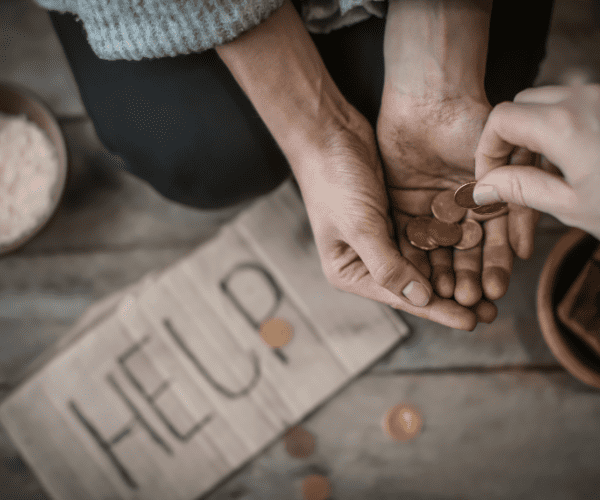
In a 2022 Financial Wellness Survey conducted by Ellevest, 62% of women indicated they’re concerned about climate change. In fact, “more women ranked it as a top financial concern above retirement planning (51%), credit card debt (46%), stock market (38%), and childcare costs (30%).”
This makes sense given what we’re starting to see across the globe with increasingly intense wildfires, flooding, and storms – but for women, the impact goes deeper than that.
The ripple effect created by these catastrophic events is more acutely felt by the world’s most vulnerable populations: women and girls.
That makes this not only a global problem, but specifically a female problem.
You might be wondering why I’m writing about climate change on a financial planning blog, and we’ll get to that. You’ll see how you can make a difference through your investments so that you don’t have to make a choice between helping the environment and saving for retirement; you can do both.
But first, let’s talk about what’s at stake.
Living in the United States it can be easy to look at the climate issue as something that basically affects our weather. Yes, many people in this country have found themselves in dangerous situations as they evacuate fires and lose homes to massive flooding - but compared to other areas around the world, we have it pretty good.
Here's why.
…women are more likely to live in poverty than men, have less access to basic human rights like the ability to freely move and acquire land…. In fact, women are denied property rights in half of the countries around the world. They are often barred from borrowing money for fertilizer and tools, which prevents them from successfully guiding their crops to harvest. They also can have trouble accessing markets to sell their harvest.
As soil quality worsens and water becomes more scarce, women will be less able to find the credit and financing they need to be resilient to the changing conditions. And without any possibility of buying new property, many female farmers will be stuck with ever-declining yields on their existing land.
"The majority of women lack deeds or titles to the lands that they farm, so their avenues for compensation or redress are limited when climate change adversely affects their agricultural output," Alam said. "Generally speaking, it’s not as if smallholder farmers have insurance, either, so they have to look for alternative income-generating activities, which can leave them desperate and vulnerable to exploitation." (Source)
Climate change is rarely discussed in relation to violence against women. It has become a global common concern due to its role as a contributing factor in exacerbating (sexual and gender-based violence) SGBV. Though entire populations are affected by climate change, women and girls face double victimization as human beings as well as because of their gender.
During emergencies, especially conflicts and disasters, women are at high risk of SGBV because of crisis in the family and society as well as due to sudden breakdown of family and community structures arising from forced displacement. As a result, women and girls become more vulnerable and face physical, sexual, psychological harm as well as denial of resources or necessary services. (Source)
Gendered roles in much of the world also make women more susceptible to the negative impacts of climate change. Women are the primary gatherers of water, food, and fuel, and they dominate subsistence farming, caregiving, and cleaning. These duties are more prone to feel the effects of environmental degradation and rising global temperatures as they rely heavily upon natural resources. In the future, this can drive a negative feedback loop of increasing poverty. (Source)
If you’re looking at these statistics and wondering what you can do about this insurmountable problem, take a deep breath; as women have always known, we’re stronger together. Now, it’s time for us to take that togetherness to a global level.
In the next piece, we’ll talk about how investing in your own future can be a big step toward helping others. Through ESG (Environmental, Social, and Governance) investing you’ll be able to invest in companies that can not only help your investment accounts, they’re also helping combat this crisis through their own initiatives.
Socially Responsible Investing (SRI)/Environmental Social Governance (ESG) Investing has certain risks based on the fact that the criteria excludes securities of certain issuers for non-financial reasons and, therefore, investors may forgo some market opportunities and the universe of investments available will be smaller.
